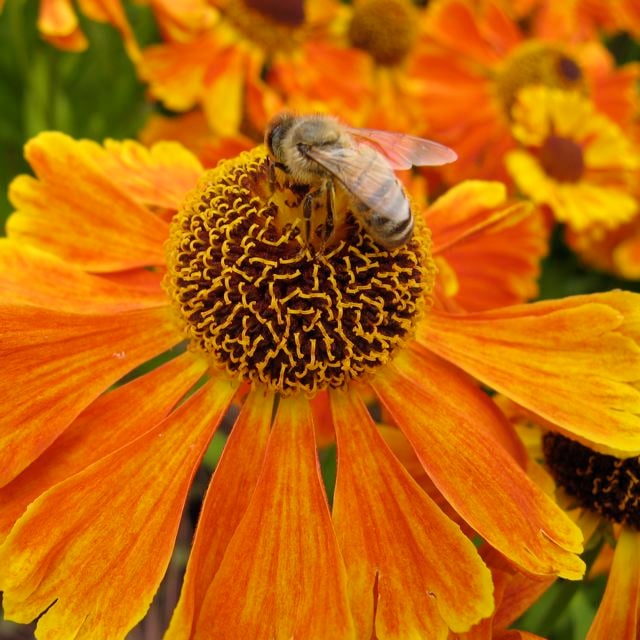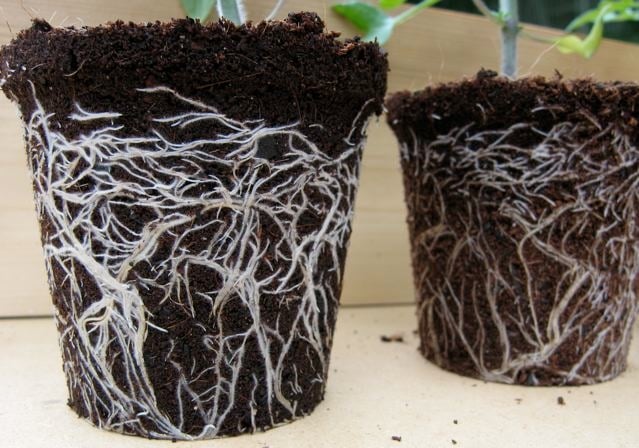The way we garden reveals a lot about our outlook on the world. It comes down to whether we feel gratitude to planet Earth – or think it owes us.
Psychology and gardening don’t often share the same bed, but there’s a general understanding that gardening can make us ‘feel better’, whether we’re just having a bad day or sinking into something deeper. It’s an enduring, accessible activity that gives us a real, felt connection with the natural world. We feel its powerful therapeutic properties – be it soaring joy on seeing a beautiful flower, or the tremendous buzz of nurturing the crops we will ultimately savour.
But beyond the familiar feel-good factor, there’s more. I have been engrossed in reading about some fascinating advances in psychological research which are turning many of our long-held assumptions on their heads. Although the findings relate to how wider society functions, I think they go some way to explaining our behaviour as gardeners. Tantalisingly, they also show how our approach to our gardens and allotments reveals much about how we view the world, and our place in it. Psychology and gardening are getting up to more than sharing a mattress.

It is generally believed that being confronted with the facts is a strong enough motivation to change our behaviour. Clear, factual information, we’ve always held, will help us decide, rationally, to do the ‘right thing’. Numerous psychological experiments conducted across different countries are now proving otherwise: we accept information which confirms our beliefs and values, and reject anything that goes against them. Being confronted with inconvenient facts, however irrefutable, can even harden our resistance to changing our ways. All of this is bound up with how we see ourselves within society, and what our values are.
Psychologists classify the values which help shape our social identity – we acquire values, rather than being born with them – as either extrinsic or intrinsic. Strong extrinsic values place emphasis on self-image, financial success, praise from others and self-advancement. Low empathy, greater prejudice, manipulative tendencies and lack of concern for human rights and environmental matters are also extrinsic traits. Intrinsic values incline toward self-acceptance, family ties, strong relationships, community, greater empathy, and deeper regard for social justice, human rights and the environment. Concern beyond self-interest is a key intrinsic attribute. Put simply, our values tend to be either self-centered (extrinsic) or beyond-self (intrinsic), and the two categories subdue one another: the stronger a person’s set of self-centered values, the weaker their beyond-self set becomes.
Let’s put this to the test using a much-debated, iconic gardening example: peat-based compost. We know that digging up raised sphagnum moss bogs destroys natural wild habitat, that peat doesn’t grow anywhere near as fast as it’s extracted, and that ‘restoration’ never replaces what is lost. Dug-out peatlands, sacrificed in the name of gardening and horticulture, are there for all to see. We know that undamaged peatlands are Earth’s most important carbon store. These are all facts.
Yet despite this, and in the face of compelling reasons for ending peat use – not least the availability of better-than-ever peat-frees – most gardeners still use peat composts. Some of this is down to simple ‘compost is compost’ ignorance, some to misleading, pro-peat propaganda, but much is down to choice. Despite the heaps of evidence, we choose, by buying peat-containing compost, to be part of a business that degrades the natural world.
It would be easy to pass this off as an isolated example of gardeners being both uninformed and stuck in the ingrained tradition of using peat because there’s nothing better. But the evidence from the jousts I’ve had over peat suggests something quite different.
Debating peat use stirs strong emotions which have rationality beating a hasty retreat. Attempts to persuade gardeners to switch to peat-free composts, which by definition avoid direct harm to the natural world, get short shrift. Success with peat-free growing, or examples of nursery owners who make a healthy living without peat, are batted away. Environmental appeals fall flat. “Peat bogs are boring anyway,” is a hollow riposte I often hear, as is, “Using a bit of peat to grow flowers for bees helps the environment.” When cornered, those defending peat use often invoke a favourite gibe: rabidly green ‘environmental campaigners’ are out to strip bullied gardeners of their ‘rights’. Gardening by this set of values says that success must come whatever the cost.

One of the main motivations for going peat-free is concern for the natural world. It preserves peatland habitats, keeps carbon locked away, and creates a use for organic material that might otherwise be landfilled. We go peat-free because we’re thinking not only of what’s going on in our own plot, but of the impact we’re having beyond it. We forgo peat because, given the facts, and a perfectly viable alternative, it’s the right thing to do. These values don’t demand that gardening succeeds at any price.
How do our values play out elsewhere in the garden? I’ve noticed a connection between gardeners who defend peat use to the hilt, and other less planet-friendly gardening practices. These folk will also fight the corner for insecticides, fungicides and chemical weedkillers. If you question the need for pesticides, wonder what effect they’re having on the natural world, and offer more earth-friendly options, you risk being branded an eco-nutter hell-bent on snatching away other people’s inalienable rights.
The begging question, if we view gardening through a value-tinted lens, is just what shapes our ‘gardening identity’? Doubtless our upbringing and education play a huge part, but I think there’s something else in play, too.
Gardeners are served by an industry which – bar a few notable exceptions – is obsessed by profit and fawns on celebrity. The clarion call of the gardening industry is to constantly expand, to build customer loyalty, to use social media to boost footfall, to make garden centres ever-bigger, better and glitzier ‘destinations’, to reach out to new customers, to create new ‘phenomena’ and markets, to maximise technology, to keep ‘adding value’. Gardening publications are drenched in advertisements influencing us to buy this or that; TV adverts sell quick, easy fixes to gardening ‘problems’. Some implore us to ‘love our garden’ by buying products that will kill anything getting in the way of a perfect plot.
When it comes to the natural world, our gardening industry is tepid at best. It has staunchly defended peat use while undermining the alternatives. More recently, lobbyists such as the Horticultural Trades Association have ignored mounting scientific evidence about the effects on bees of neonicotinoid-containing bug-killers, advising garden retailers to keep on selling them. Gardening must succeed at any cost, even if the natural world suffers collateral damage. The gardening industry, running high on self-interest, has suppressed gardening’s true values.
I’ve always felt that a love of gardening goes hand in hand with a love of the natural world, that working the soil, sowing, planting and harvesting, is a true expression of environmental concern. Gardening’s core, surely, is about adding life to the world, about sharing a common interest, about making our surroundings richer, more colourful and more abundant, for others as well as ourselves.
Gardening’s true values haven’t gone away, but because they’re hard to package and even harder to sell, they’ve got buried along the way. Rediscovering them is easy, and they could help you realise what you truly value in the world.
Text and images © John Walker


